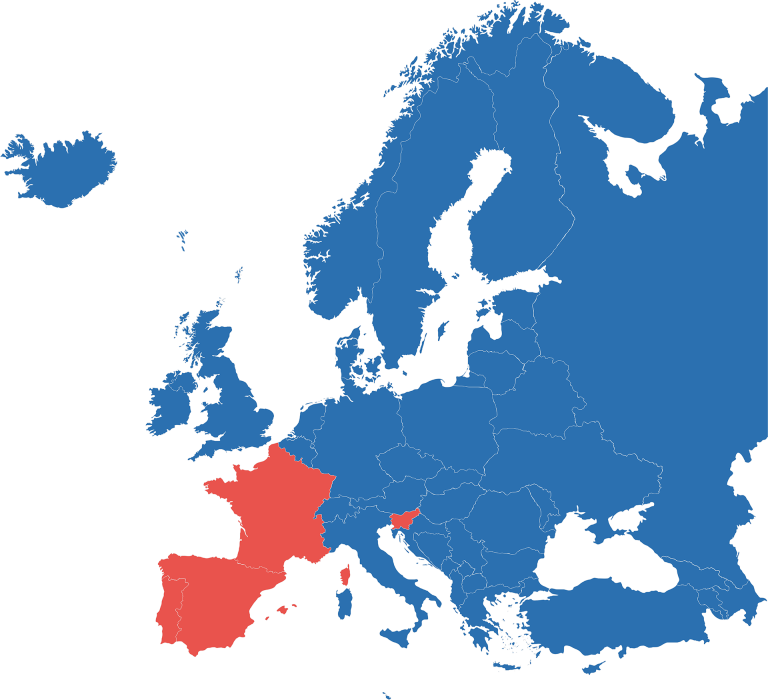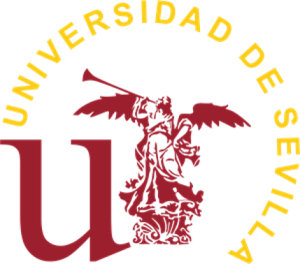Magnetic Cooling for Vaccines
Project Name & Duration
MAGCCINE
Clean and Efficient Cooling in Vaccine Transportation Using Rotating Magnetocaloric Effect
1.10.2024 – 30.09.2028
Funding
Funded by The European Union under the EIC Pathfinder Challenge: Clean and efficient cooling, managed by @European Innovation Council.

Coordinator & Partners
University of Porto (Portugal)
CNRS (France)
University of Sevilla (Spain)
University of Aveiro (Portugal)
MagREEsource
Helium3 Technologies
University of Ljubljana (Slovenia)
MagREEsource (France)
Helium3 Technologies (Spain)
This project has received funding from the European Union’s Horizon Europe research and innovation programme through the European Innovation Council under the grant agreement No. 101161135. Views and opinions expressed are however those of the author(s) onlv and do not necessarily reflect those of the European Union or European Innovation Council and SMEs Executive Agency. Neither the European Union nor the granting authority can be held responsible for them.
Consortium
Within FCUP, this project will be developed at IFIMUP (ifimup.up.pt), an associated excellent (FCT) laboratory that develops multidisciplinary research in the fields of pure/applied physics including energy, thermal control materials/devices and magnetic refrigeration. In particular, IFIMUP has a renowned experience in the production of different families of MCMs and on their thorough characterization using their own equipment, such as: for production (arc-melting, RF-melting, ball-milling/mechanical alloying, multi-environment furnaces, Sputtering, Pulsed laser ablation, Electrodeposition) for characterization (SEM/EDS, AFM, MFM, Electrical resistivity, MPMS3, VSM, PPMS, tailored cryostats) under a wide range of external stimuli (temperature, magnetic and electric fields and pressure).
UA is one of the most dynamic and innovative universities in Portugal, ranked as one of the best universities of the Times Higher Education Young University Rankings for the world’s universities that are aged 50 years or under. This project will take place at CICECO (Aveiro Institute of Materials) – the largest national Materials Science and Engineering (MSE) institute. The instrumental facilities are the best MSE in the country, including experimental SEM, (S)TEM, AFM, X-ray diffraction, magnetic, electric, thermal, mechanical properties and modelling numerical simulations equipment and expertise: in-house computer cluster and regular access to supercomputers across Europe. The Magccine UAveiro team has over 2 decades of research in magnetocaloric effect with particular focus on the development and application of magnetic models to describe and interpret the magnetocaloric effect in both second- and first-order magnetic refrigerants.
Helium3 Technologies (Helium3) is a young SME built on 30y of team experience on heat transfer, temperature control, heat pump/cryostat, vacuum, cryogenics and gas analysis under vacuum environment. Helium 3 is expert on the whole chain of heat pumps and cryostats, including tailored insulating materials, thermal control devices/circuits, heat-transfer and sub-elements design. Moreover, its director, Carlos Montero has 10y experience working at different companies (CENITA SA, CiRTA SL and CiRTA EMiSSiONS SL), where he has developed systems to model (COMSOL, ANSYS), produce and control rotating magnetic fields with high homogeneity in large volume gaps.
MagREEsource is a female-led spin off company founded in 2020, which benefits from more than 25 years of expertise within CNRS laboratories in the field of Rare Earth-Transition Metal phases and associated processes.
As a magnet producer, MagREEsource uses a green recycling process (hydrogen decrepitation) which enables to extract a powder from bulk end of life NdFeB magnets (MagREEsource patents) and produce new recycled magnets.
MagREEsource is currently working on an industrial plant (pilot line of 50 tons/year) to start high scale production and its goal is to manufacture 500 tonnes of magnets within 5 years. As a player in the Circular Economy, MagREEsource’s objective is therefore to promote magnets at the end of their life, by producing new magnets for European manufacturers. Furthermore, MagREESource team leader, Sophie Rivoirard, has been focused on the manufacturing processes of RE based magnets since her PhD. As a pioneer in the hydrogen treatment of scrap magnets, she led magnetic materials research studies as manager of a CNRS research team.
UL is the oldest and largest university and generates nearly half of the research results of Slovenia. The Magccine UL team is from the Faculty of Mechanical Engineering and consists of 18 people (one ERC grant) and demonstrates global engineering leadership and expert competences in several international research projects on magnetocaloric, electrocaloric, and elastocaloric cooling, heat pumps and thermal management by thermal control devices and circuits. Furthermore, UL team leader Andrej Kitanovski has notable presence in the field, serving as a leading engineering figure in the research of magnetocaloric heat pumping and founding member of the International Institute
of Refrigeration (IIR) Magnetic Cooling Working Party, and founder and Chair of the lIR Solid State Cooling and Heating group. UL’s most recent projects related to magnetocalorics are TCCbuilder, MagBoost and Multicaloric cooling.
Universidad de Sevilla (USE) was established in 1505 and, with more than 70,000 students and 6900 staff,
is the third largest university in Spain. USE embraces academia, industry, engineering and science and, with a
relevant educational and technological infrastructure, is an intellectual reference in the South of Europe. Furthermore, USE leader Victorino Franco and his team are internationally recognized for the development of new characterization protocols of magnetocaloric materials, with particular focus on the study of phase transitions, scaling laws, and temperature first order reversal curves (TFORC), as well as for the discovery of rare earth free high entropy magnetocaloric alloys. Experimental facilities include state of the art magnetometers, direct measurement of adiabatic temperature change (home-made) and temperature and stress dependent microstructural characterization.
The CNRS (Centre National de la Recherche Scientifique) is a French public multidisciplinary research organization and will be involved in the Magccine project through its largest solid state physics laboratory: Institut NEEL – a world recognized center of excellence for the study of functional magnetic materials. Members of the team involved in this project have been using continuous and micro/nano-patterned thin films as model systems to study both hard magnetic materials and magnetocaloric materials. More recently, they worked on the high-throughput fabrication of materials libraries of hard and magnetocaloric materials, through the sputtering of compositionally graded films and their high throughput magnetic characterisation using an in-house developed scanning Magneto Optic Kerr Effect (MOKE) system based on a patented pulsed magnetic field system and by machine learning tools linking magnetic properties to composition and processing conditions.
Advisory Board
Every year, 1.5 million lives are lost globally due to limited access to vaccinations
At the same time, over 50% of produced vaccines are wasted, primarily because of ineffective temperature control during storage and transportation. The vaccine cold chain faces several critical challenges: increasingly strict regulations on aerial transport due to the hazards of refrigerant gases, the high energy demands of refrigeration devices in areas with unreliable electricity, and the significant carbon footprint of high global warming potential (GWP) refrigerants.

The MAGCCINE project aims to transform the vaccine cold chain by developing a clean, efficient, solid-state magnetic refrigeration system based on the innovative rotating magnetocaloric effect (RMCE)
This technology, patented in 2023 by project partners, reduces the need for permanent magnets, significantly lowering production costs, volume, and weight while enhancing efficiency. By eliminating harmful refrigerant gases, RMCE presents a sustainable solution to the pressing challenges of vaccine transportation. The final goal of this project is to design and optimize a fully operational vaccine refrigeration prototype that maintains the critical 2-8 ºC temperature range required by most vaccines.
Vaccine
cold chain transportation
Magnetic refrigeration
Rotating magnetocaloric effect (RMCE)
Solid-state cooling
Energy-efficient refrigeration
Sustainable refrigeration solutions
Press
Address:
Departamento de Física e Astronomia da Faculdade de Ciências da Universidade do Porto
Rua do Campo Alegre, 687
4169-007
Porto, Portugal
Email:
magccine@gmail.com

















